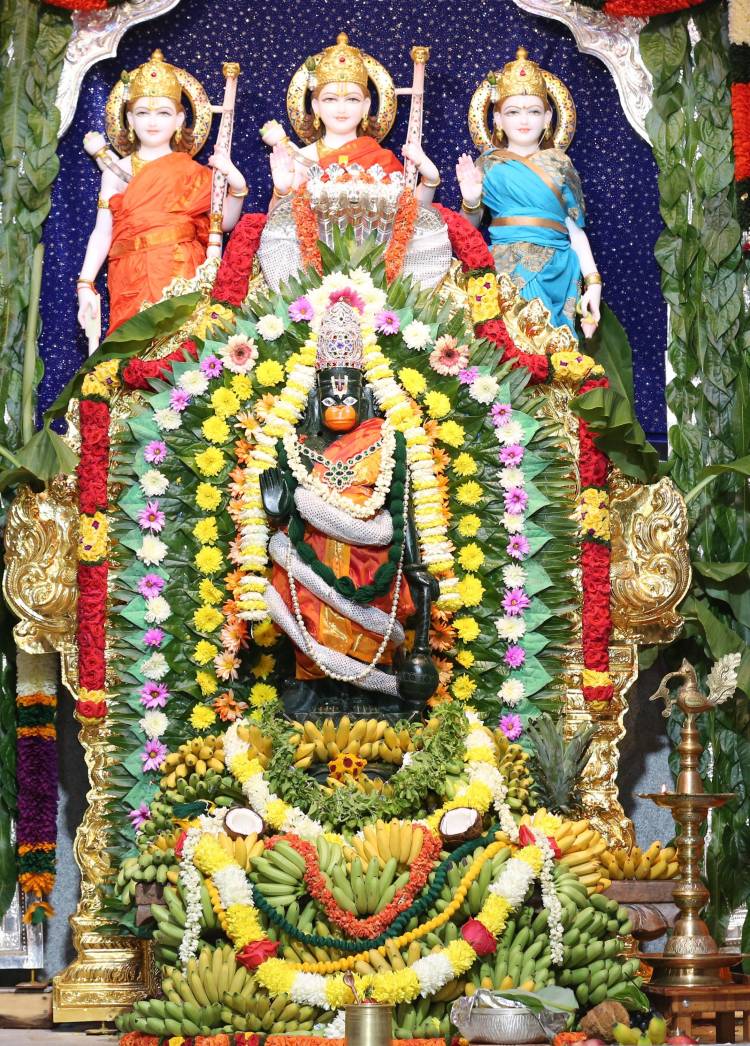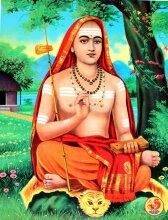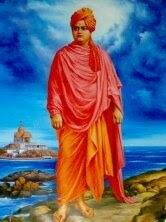GHHF “Reviving Hinduism” book to be released soon: Introduction to the Book

This spiritual gift, that makes a man human, is still alive in Indian souls. One can go on giving the world Indian examples of such souls. Nothing else can do so much to help man-kind to save itself from destruction..., that in the 21st century "India will conquer her conquerors." Arnold Toynbee (A British Historian, 1889-1975)
Over the years, Hindus have slowly forgotten the amazing treasures that are hidden in the land of Bharath. The resilience of Hindu mind; suppleness of its soul; suppleness of Hindu character; gracefulness of Hindu cultures; equanimity of Hindu moral compass; gracefulness of Hindu traditions; the inner strength of Hindu scriptures; sacredness of rivers, mountains, animals and trees; the genuineness of the simple living and high thinking; the astounding principles of ahimsa — belief in nonviolence, grandeur of the principle of Vasudaika Kutumbam; the potency of spiritual life and glory that was and is Bharath; and all-embracing live and let live principles are the gems that are essential for the survival of Hinduism and human race itself.
The richness of Bharath was clouded by ignorance, her glory seared with communalism, enveloped with the fog of secularism. The Hindu pride was tarnished with greed and smeared with Macaulyism. The future of Bharath looks bleak, depressing and miserable. Bharath Mata is attacked from all quarters. She is not even spared by vocal Hindu secularists, liberals and communists. Media has created havoc by denouncing the Hindus, Saints and Hindu organizations and leaders. Beneath every Hindu, there is the presence of divinity, dharma, spirituality and ahimsa. Somehow, he has forsaken the ancient richness and allowed it to be smeared with greed, name, fame, power, position, wealth and recognition that only satiate the present not the future. Divine intervention can only reverse the trend and malaise.
Hinduism is being attacked by selected Hindus as well as the two Abrahamic religions. Patience, tolerance and ahimsa made Hinduism a defenseless religion in the world. It has become a soft target with no retaliation or any plan to protect itself from enemies both within and without. Unlike other two major religions, Hinduism does not preach for expansion, does not believe in terrorism and does not practice deceptive techniques to convert people; nor do they believe in the expansion through conversion techniques. Their emphasis is on the development of the individual, self-improvement and enlightenment.
Muslims and Christians have ruled India for more than ten centuries. They have ruled India with iron fist by converting scores of Hindus, killing millions for refusing to be converted, destroying thousands of Hindu Temples, breaking the images of Hindu Gods, building mosques on the ruins of Hindu Temples, rampaging villages, and kidnapping the women. They have openly, inhumanely and blatantly applied all means to dominate, suffocate, suppress and convert the gullible, hapless Hindus into their religions. Their assaults and atrocities have broken the will of Hindus who kept silent to avoid further destruction and demise. In the process, they became disoriented, ignorant and lost self-pride.
It is time to revive the Hindu culture, traditions, ethos and values and enshrine them in the heart of every Hindu and every human being in order to avoid the impending catastrophe. We must impress upon the rich philosophical underpinnings that are the basis for human survival. Efforts must be made to wake up Hindu society from the doldrums of apathy, indifference, silence, negligence and selfishness. Close attention must also be made to the spiritual advice of all saintly people who have been the torch bearers of preserving and propagating Hindu dharma for millennia. RSS Chief Mohan Bhagavat stated that we have the responsibility of reviving Hindu culture. "In our country, there is a tradition of believing saints' teachings as truth. Saints, with their 'Tapsya' (austere devotion) used to unite Hindu Samaj and create awakening." The RSS Chief also stated that, "for social awakening whatever the saint Samaj does any work, that always bring very positive results." (The Times of India, February 24, 2015).
Chief Justice Gajendragadkar explained in 1966 that, “Unlike other religions in the world, the Hindu religion does not claim any one prophet. It does not worship any one God. It does not subscribe to any one dogma. It does not believe in any one philosophical concept. It does not follow any one set of religious rites or performances. In fact, it does not satisfy the traditional feature of a religion or creed. It is a way of life and nothing more.” If Hinduism is not a religion, Hindutva is much less than that. It cannot be construed as anti to any religion. It does not fit into the definition of religion.
The first chapter is about “Hindu Identity – Panacea for Social Ills and Human Extinction” deals with the richness of Hinduism and its universal appeal to bring peace, harmony and togetherness. In order to enjoy the spirit of Hinduism, we have to make an effort to identify with our faith. To identify with timeless wisdom of Sanatana Dharma, we need to learn about the three pillars, breadth of scientific knowledge, depth of the literature, uniqueness of Sanskrit, vibrations of chanting mantras, energy embedded in Hindu Temples, power of worship services, benefits of yoga and meditation and other subject matters.
 The second Chapter calls for declaring India a Hindu Rashtra to protect the universal principles that give unlimited freedom, allow explorative mind, tolerate differences and accommodate diversity of beliefs without any agenda to destroy other cultures. Declaration of Hindu Rashtra cannot be against any other faith. Hindus have never conquered any other country to establish the hegemony of their faith. As Indian Supreme Court observed, Hindutva is a way of life, it is not a religion the way other religions are defined. Dharma is the central theme of Hinduism that calls for promotion and preservation of unity and harmony among material and non-material world without creating conflict and chaos.
The second Chapter calls for declaring India a Hindu Rashtra to protect the universal principles that give unlimited freedom, allow explorative mind, tolerate differences and accommodate diversity of beliefs without any agenda to destroy other cultures. Declaration of Hindu Rashtra cannot be against any other faith. Hindus have never conquered any other country to establish the hegemony of their faith. As Indian Supreme Court observed, Hindutva is a way of life, it is not a religion the way other religions are defined. Dharma is the central theme of Hinduism that calls for promotion and preservation of unity and harmony among material and non-material world without creating conflict and chaos.
The third chapter deals with a number of suggestions to revise the School curriculum: to present the factual history of India, study the national heroes who have sacrificed their lives for us the enjoy the freedom, teach the universal values found in Ramayana and Mahabharata, explain the stupendous knowledge fond in Bhagavad Gita, pass on the Panchatantra stories to exercise proper judgement and enlightenment, know the experiences and the power of great saints of Bharath, the sacredness of Gomata (mother cow), practice of yoga and meditation for purification of mind and soul, and know the atrocities committed on Hindus by other faiths.
The fourth chapter demands the government to make Bhagavad Gita mandatory for all students in India. The school curriculum until 2014 was revised to denigrate Hindu way of life, demean it as Hindu fundamentalism, negate the entire history of Hindu India, bolster the image and contribution of Muslim leaders and insult the scriptures. Since Independence, the ruling party deliberately tarnished the image of Hinduism calling it as representing “saffron terrorism.” Bhagavad Gita deserves to be part of the curriculum once we realize the greatness of its message as seen in the statement of Henry David Thoreau who said, "One sentence of the Gita, is worth the State of Massachusetts many times over." This chapter highlights the contribution of Bhagavad Gita for humanity.
The fifth chapter deals with the merits of memorizing Bhagavad Gita by children and its universal message. More than 50 children, ages 5 thru 13, memorized and chanted in front of Sri Ganapathy Sachchidananda Swamiji at Karya Siddhi Hanuman Temple in 2016 abiding by the command of their Sadguru. This chapter discusses the grasping and memory power of children as compared to adults, how their brain functions compared to the adults, the benefits of memorizing, scientific nature and structure of Sanskrit language, the power of OM, merits of chanting Sanskrit mantras, and the innumerable lessons in leading one’s life as offered by Bhagavad Gita to the students.
The sixth chapter describes the need for reviving the Gurukula concept where the transmission of knowledge is passed on to the Sishyas by Guru. There is a long tradition of Guru-sishya relationship explained in greater detail in all the scriptures. Topics discussed in the chapter include the definition of a guru, the characteristics of a guru, the difference between Guru and Sadguru, importance and the need for guru in one’s life, the belief that Guru is even greater than God, significance of worshipping Padukas, and the benefits of associating with spiritual personalities.
The seventh and eighth chapters highlight the importance of mother who is described as the most selfless person and as the embodiment of sacrifice and protection. Scriptures are replete with the respect showered on the role of mother. Ramayana, Mahabharata, Manu Smriti, Vedas and other scriptures have gone to the extent of declaring that deities reside in places where women are respected. Bhishma even admired mother in an exceptional way: “There is no shelter like the mother. There is no refuge like the mother.” Many Sadgurus praised the sacrifices of mothers in raising and protecting their children. Swami Vivekananda aptly describes the nature of mothers as thus: “Women as mother is marvelous, unselfish, all suffering and ever forgiving.”
Chapter nine on dharma and dereliction of dharma starts with the definition of dharma as duty, righteousness, obligations, and justice that promotes harmony and common good in the society. It is the dharma of all Hindus to preserve and protect the universal values which are the bedrock of Hindu way of life. Many Hindu leaders and organizations are failing in their responsibility to defend the atrocities committed against Hindu Temples, insults hurled against Hindu Gods and Goddesses, and abuses tossed against Hinduism. Hindus should remember the Islamic onslaught that killed millions of Hindus and Goa inquisition by Christians who made the Hindu blood flow from the “Big House” by using such techniques as torture by rope, fire, and water. If Hindus do not take appropriate steps to protect their religion, the history will repeat itself to witness biggest Hindu holocaust.
Chapter ten and eleven discuss the sacredness of Cow as revealed in the scriptures that have extolled its virtues. Cows were treated as mother and hailed as auspicious. It is said that in every part of cow’s body a particular god or goddess resides. For example, Brahma resides in her head, sun and moon in her eyes, Saraswati on her tongue, Lakshmi in her cow dung, Parvati in her urine etc. Rig Veda, Yajur Veda, Sama Veda and Atharvana Veda have commended the cow and suggested that she should not be killed. Although Article 48 of Indian Constitution requires the state to implement prohibition of the slaughter of cows and calves, the central government failed to take appropriate action to close the illegal slaughter houses. Cow slaughter mafia is very active with years of central governments tacit support and making India as the highest exporter of beef. In fact, government even subsidizes the export of beef to the foreign countries. Several recommendations were made to protect cows from being killed and close slaughter houses.
Chapter twelve on Ramayana enunciates the immortal values that are passed on across the globe for millennia. Hinduism has developed the eternal universal principles that cut across all the ages which are reflected in Ramayana. Each character in Ramayana is unique, and has exemplified the highest morals for all of humanity with no physical boundaries and no time limitations. Lord Rama, as an ideal son, obeyed the commands of his father without ever questioning his judgment; as ideal enemy, asked his brother to learn the life’s lessons from Ravana and also asked Vibhishana to do the funeral services; and as an ideal brother, taught Lakshman that righteousness is the best of all qualities. Similarly, Hanuman’s devotion and selfless service are the virtues for all of us to practice. Sita as an ideal wife followed her husband to the forest willingly to experience the hardships.
 Chapter thirteen deals with the transcendentalists’ admiration for Bhagavad Gita. Ralph Waldo Emerson, David Henry Thoreau and Walt Whitman were the three stalwarts who paved the way to trek and experience the Hindu spirituality and sowed the seeds to make the American soil fertile to reap the fruits of yoga crop. Emerson, who was the first American to read Bhagavad Gita, said that, “it was as if an empire spoke to us, nothing small or unworthy, but large, serene, consistent, the voice of an old intelligence which in another age and climate ….” Thoreau said every single word was elevating and “One sentence of the Gita, is worth the State of Massachusetts many times over." Walt Whitman was the one who practiced yoga, experienced the peace of mind and even insisted that during his meditation the senses are lost to experience the trance – to mean Kundalini.
Chapter thirteen deals with the transcendentalists’ admiration for Bhagavad Gita. Ralph Waldo Emerson, David Henry Thoreau and Walt Whitman were the three stalwarts who paved the way to trek and experience the Hindu spirituality and sowed the seeds to make the American soil fertile to reap the fruits of yoga crop. Emerson, who was the first American to read Bhagavad Gita, said that, “it was as if an empire spoke to us, nothing small or unworthy, but large, serene, consistent, the voice of an old intelligence which in another age and climate ….” Thoreau said every single word was elevating and “One sentence of the Gita, is worth the State of Massachusetts many times over." Walt Whitman was the one who practiced yoga, experienced the peace of mind and even insisted that during his meditation the senses are lost to experience the trance – to mean Kundalini.
Chapters fourteen and fifteen expose the hypocritical statements made over the years supporting the minorities and demeaning the majority population. Killing of one Muslim and a rationalist writer prompted these intolerant intellectuals to criticize the Modi government while they remain silent when Hindus were killed by minority religions. In 2015 five Hindus were killed by Muslim mob, Hindu leader, Karthick Methia was killed, and many Hindu houses were burned. None of these so-called liberals failed to even recognize the brutality of the minorities. Similarly, when President Obama made statement following his visit to India that "India will succeed so long as it is not splintered along lines of religious faith, splintered along any lines and it is unified as one nation." His statement equates the tolerant Hinduism to the centuries of Islamic and Christian atrocities. History has documented countless deaths, destruction of Hindu Temples, deceptive conversions, and rampage of villages with no reaction from these liberals and secularists. Buddhists, Jews, Parsis, Jains and other non-proselytization religions lived with no discrimination since they do not force their religion upon the Hindus. It is the Christians and Muslims who splintered along the religious lines to condemn the Hindus to hell.
Chapter sixteen describes the nature of spirituality, the benefits of spiritual living and its contribution to human survival. Religion has killed millions of people across the globe to establish their domination over the countries of other faiths. Religion divides and spirituality unites. Religion brings untold misery while spirituality fetches happiness and peace of mind. Spirituality brings out the godlike qualities such as love, compassion, forgiveness, gratitude, kindness, Ananda (bliss), and truth in the humanity. Several Hindu scriptures conveyed the essential nature of spirituality and how it will serve as a key to human survival. Evidence was documented to show how yoga and meditation are revolutionizing the concept of connecting the individual soul to Super Soul to experience the freedom from fear, misery, stress, hostility and enmity.
Chapter seventeen details the deceptive practices Christians have adopted for centuries to convert people in different countries into Christian nations. In India they are more aggressive, belligerent and violent in destroying the ancient civilization by converting gullible Hindus into their fold. Even John Pope Paul II asked his followers to plant the cross firmly in the vast Indian soil. Several verses from the Bible are listed about the deceptive practices to follow, breakdown of the sacred stones to pieces, and condemn followers of other faiths to hell. Hindus should realize that all religions are not the same. Hinduism cherishes the ideal of peaceful coexistence while other religions are bent on destroying other faiths. No Hindu can afford to forget the atrocities committed on Hindus in Goa. Hindus should not allow the history, that witnessed the bloodbath of their forefathers to repeat itself.
The last chapter deals with the efforts of Muslim leaders to annihilate Hindus, suffocate the country, throttle the freedom of speech, and replace the democracy with Islamic totalitarianism. Until Independence, majority of Muslim leaders had argued that they need to have a separate home land and vehemently advocated the division of India into two countries: Pakistan for Muslims and India for Hindus. That did not materialized at the time. Now the Muslim population is increasing day by day and they want to fulfill their dream of fulfilling the “unfinished business” of converting India into a Muslim country. Unfortunately, Islam is incompatible with democracy, freedom, women rights, and secularism. The article argues that it is time to implement the two-nation theory by sending Muslims to Pakistan, however difficult that may be. Knowing the difficulty of implementing two nation theory, Hindus should consider advocating introduction of benign dictatorship for a period of time to stop the Hindu holocaust.
Acknowledgments
These articles have been written over the last eight years. I want to acknowledge the able and admirable contribution of my wife, Nandini, in revising and editing these articles. Her continued support in our efforts to challenge the Endowment Act for the last ten years is acknowledged. My sincere appreciation to Sandeep Mamidenna, Pavan Neti and Laxmi, who helped in editing these articles. Assistance of Pratap Velagapudi regarding computers and data management is recognized.
Dr. Subramanian Swamy is a great source of inspiration to carry out the mission of GHHF to challenge the Endowment Act. His constant and continued guidance is a source of inspiration for all of us. I am grateful to Dr. Swamy for writing the FOREWORD to the book.
Sri Paripoornananda Swamiji is one of the activist who has been portraying the Hinduism as per the scriptures and defending dharmic and universal believes and challenging the critics who have been misinterpreting the true nature of Hinduism. We appreciate his willingness to write FOREWORD to the book.
Dr. Ghazal Srinivas, the Brand Ambassador of GHHF, is conducting various programs in India through his various contacts. He is also managing the SaveTemples office in Hyderabad and monitoring the government activities. We are very appreciative of his passionate assistance and his FOREWORD to the book.
I want to express my gratitude to all the individuals who served as The Board of Directors of GHHF for their support, encouragement and contribution. Their indispensable assurance and passion to free Hindu Temples from the government control is contagious.
Similarly, the Executive Committee members and many others in Dallas area have been active participants in organizing numerous activities over the last eight years. Too many members and volunteers to name them individually. Their continued participation, encouragement and commitment to the cause is greatly appreciated. The credit goes to all these members and other volunteers for organizing several successful programs.
Jai Hind.
DONATIONS
Please DONATE. Your donations are appreciated to continue the work.
NOTE: GHHF is exempt from federal income tax under section 501 (c) 3 of the Internal Revenue code.
Our tax ID # 41-2258630
Donate at: http://www.SaveTemples.org (click ‘Donate’ button on right side).
Where to send your DONATIONS?
Global Hindu Heritage Foundation
14726 Harmony Lane, Frisco, TX 75035.
Your donations are tax deductible. Our Tax ID: # 41-2258630
Any questions, call: Prakasarao Velagapudi 601-918-7111
















